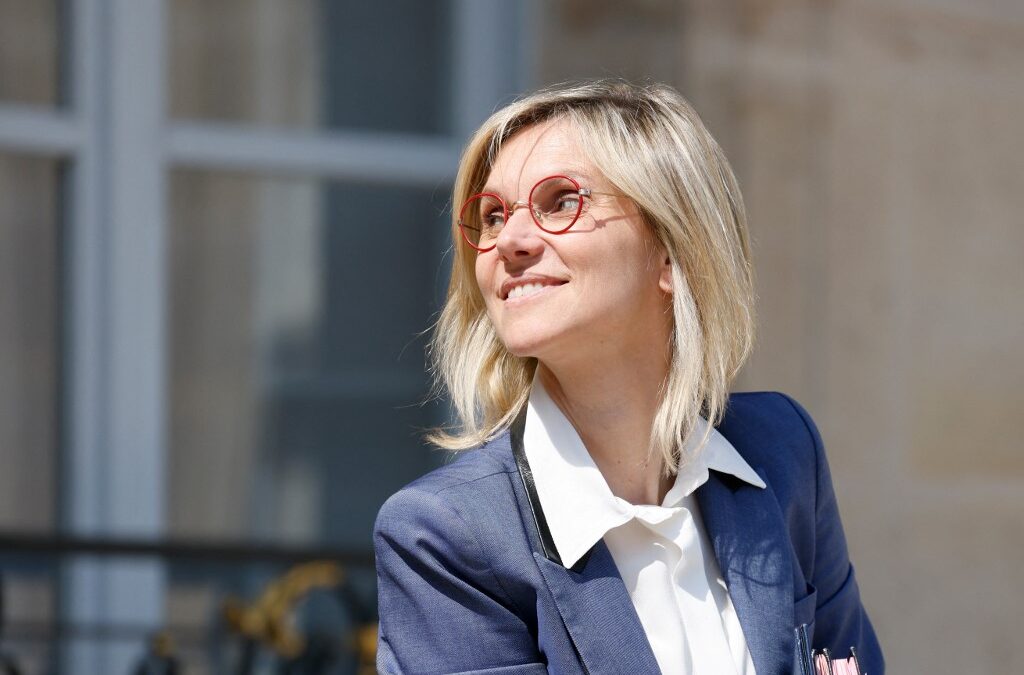 Have the article read by OpenAI (Beta). Please note that AI translations may take some time to process.
Have the article read by OpenAI (Beta). Please note that AI translations may take some time to process.France welcomes agreement on renewable energy consumption
Paris (AFP) – On Saturday, one day after a meeting of EU ambassadors, France welcomed a European agreement on the Renewable Energy Directive that “corresponds to the expectations” of Paris.
“I welcome the European agreement we have reached on the Renewable Energy Directive: it meets France’s expectations,” said French Minister for Energy Transition, Agnès Pannier-Runacher, in a statement to the press.
This diplomatic agreement, negotiated within Coreper, the body bringing together the EU’s ambassadors in Brussels, confirms “a target of 42.5 percent renewable energies” in Europe’s energy consumption by 2030.
With this target, Europe was “giving visibility to investors and positioning itself as a leader in the energy transition to achieve carbon neutrality by 2050,” Pannier-Runacher said.
Another point crucial for France was that the agreement “recognises the role of nuclear power” in achieving Europe’s decarbonisation targets, Pannier-Runacher added. (17 June)
Debate on EU debt rules: France calls for country autonomy
Luxembourg (dpa) – In the debate on a reform of the EU’s debt rules, France continues to oppose the uniform rules for all countries demanded by Germany, among others. “Our answer is clearly ‘no’, for reasons that stem from our past experience,” Finance Minister Bruno Le Maire said at a meeting of EU finance ministers in Luxembourg on Friday. “I remind you that the European Union is still built on the sovereignty of nations and states,” Le Maire said.
German Finance Minister Christian Lindner, on the other hand, reiterated his call for uniform rules. “We need common rules that are the same for everyone,” he said in Luxembourg. Fiscal rules should not become “softer in principle, but more realistic and reliable.” Another ten – mainly Eastern European – countries had sided with Germany in a guest article in German daily Die Welt on Thursday. They also spoke out in favour of “clear and comprehensible rules that apply equally to all member states.”
Currently, the EU is negotiating a reform of its debt rules. The rules prescribe upper limits for the states. In essence, they provide for debt to be limited to a maximum of 60 percent of economic output and for budget deficits to be kept below 3 percent. Due to the Covid-19 crisis and the fallout from Russia’s attack on Ukraine, the previously applicable rules have been suspended until 2024. States normally have to repay 5 percent of the debt above the 60-percent mark in a year. For highly indebted countries like Italy or Greece, this would be devastating for growth. Even before the pandemic, the rules were disregarded, also by Germany.
In reform proposals for the so-called Stability and Growth Pact presented in mid-April, the EU Commission had suggested giving highly indebted countries more flexibility in reducing debts and deficits. Instead of uniform requirements for all countries, the authority relies on individual ways for each country to reduce debts and deficits in the long term. From Germany’s point of view, the proposals are not sufficient; Finance Minister Lindner demands strict minimum requirements. For example, countries with high debt ratios should have to reduce them by at least one percentage point per annum. (16 June)
Von der Leyen closes Mexico tour with focus on trade and Ukraine war
Mexico City (EFE) – European Commission President Ursula von der Leyen concluded her Latin American tour in Mexico on Thursday. During the tour she had sought to boost trade agreements with Mercosur and Mexico, warned of global disruptions caused by Russia’s war in Ukraine and highlighted the EU’s strong sustainable investment package in the region.
“Global challenges such as Russia’s war on Ukraine, the fight against climate change, extreme poverty and the global race for technology are pushing the EU to strengthen ties with historic partners. The countries of Latin America and the Caribbean are partners by choice,” von der Leyen said in an interview with EFE in Mexico.
The last stop, in Mexico City, was the only one where no statements were made to the media. Von der Leyen and Mexican President Andrés Manuel López Obrador limited themselves to issuing a joint communiqué after a private meeting at the presidential palace in the Mexican capital. Frictions between Mexico and the EU during López Obrador’s administration so far concerned energy transition policies, the stance on Russia’s invasion of Ukraine and the protection of journalists.
“Regarding economic cooperation, we agreed to accelerate the signing of the free trade agreement between our country and the European Union,” López Obrador said in a message on Twitter, without giving further details. (15 June)
This is a compilation of the European coverage of enr news agencies. It is published Tuesdays and Fridays. The content is an editorial selection based on news by the respective agency.
